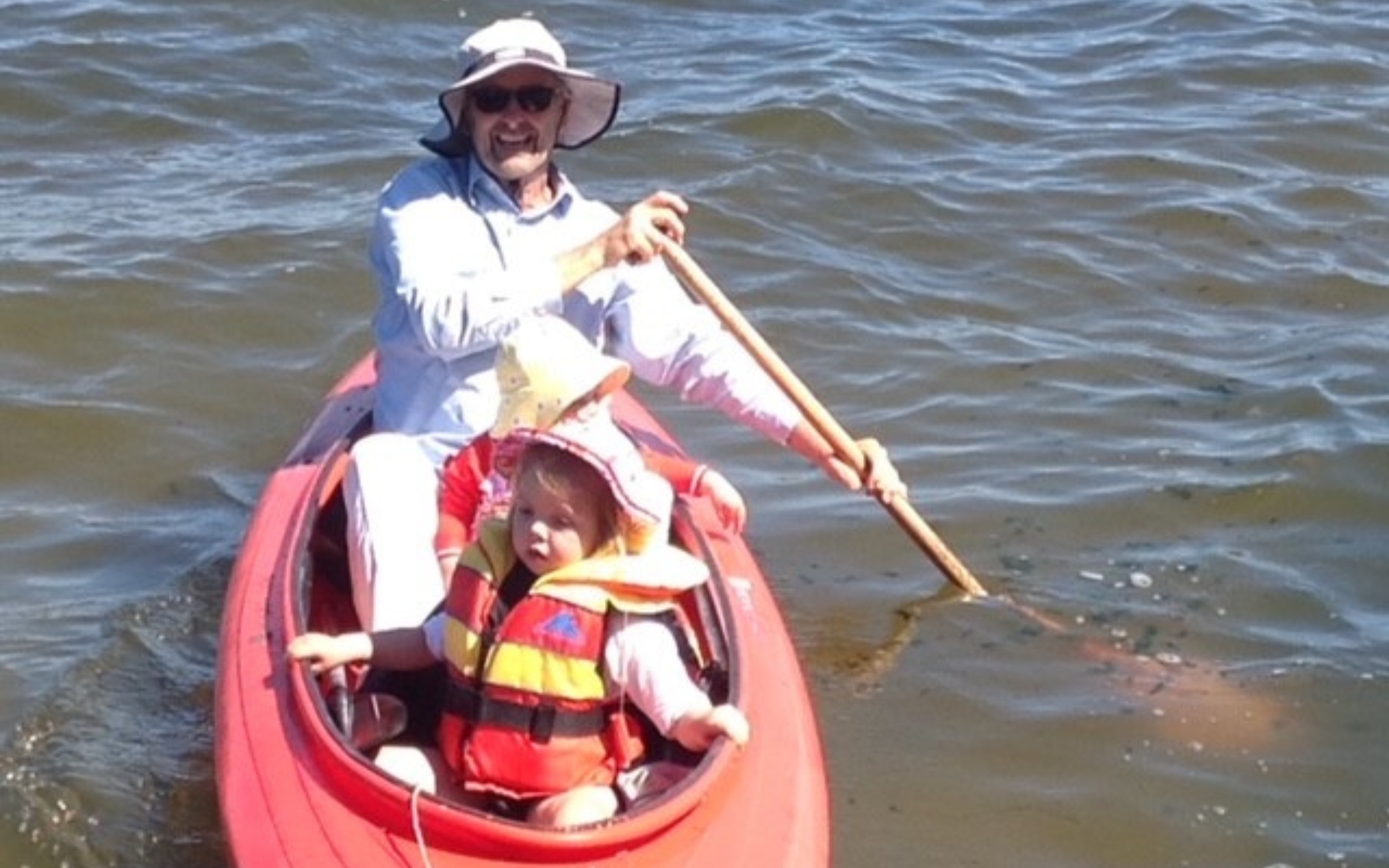Getting to know David, one of Cancer Council Victoria’s Cancer Connect volunteers, it’s easy to get lost in the idyllic image of his current life in East Gippsland.
“It’s paradise here. It’s just superb – we have kangaroos coming in to be fed, there’s a rosella that eats out of my hand, and we’ve got the lake 50 metres from our front door. And the grandchildren are nearby – life's pretty good."

But the past 30 years of David’s life hasn’t been without its ups and downs. A retired jack of all trades (most recently a special needs teacher), David was diagnosed with chronic hepatitis B in 1993. A challenging ten years followed, where David suffered side effects such as extreme fatigue, inflammation of the lungs and pneumonia. Then, just when he was starting to feel better thanks to new antivirals, David went for a regular six-monthly check-up and found a tumour the size of a fist on his liver and was diagnosed with liver cancer.
“There was shock, of course, but also a sense of unreality. As though it wasn’t happening. I was starting to regain some energy and optimism, then bang came the cancer diagnosis.”
His specialists felt it was too late for chemotherapy or radiation, and David didn’t have much time to absorb the news before he went into a 12-hour operation to remove a large part of his liver and his gall bladder. The hardest thing at that time, he says, was telling those close to him, and knowing what arrangements he had to make in case the worst happened.
Thankfully the surgery was a success, and twenty years on David is lucky enough to have never relapsed. He continues to manage his hepatitis B through antivirals, and deal with some side effects here and there, but is aware that overall he’s been “extraordinarily lucky”.
“I had established relationships and methods in place after being in the system for ten years already,” David says. Without this, the support of Cancer Council Victoria’s 13 11 20 nurses would’ve been essential as he navigated the health system, discussed treatment options and dealt with the emotional and financial impact of cancer.
Drawing on both his personal experience with cancer and his lessons learned from volunteering with Cancer Connect, David has shared five tips for Victorians newly diagnosed with cancer.
1. The 13 11 20 Information and Support line is "vital”
“Cancer Council Victoria and 13 11 20 can provide all sorts of assistance. It’s not just a matter of getting medical information – there are all sorts of areas where they can help, whether it be with financial counselling, side effect support or just talking things through .”
2. Try keeping a journal or notebook for your treatment
“I’ve always kept an exercise book – old fashioned technology! But in that exercise book I write all of the appointments I have, but also more importantly I write all of the questions I have. I would take the book in with me and unashamedly say, look, I’ve got this book with questions. Do you mind? And they always say they’re fine with it. In fact, they’re happy about it.”
3. Ask questions until you’re satisfied you understand.
“The other thing I stress is that if I don’t understand the answer, I’ll keep asking. It’s almost a social thing that some people are inclined to accept an answer that they don’t really understand, but I think it’s important to say, well, I just don’t quite get that. Can you explain it in another way?”
4. Do everything you can to stay healthy.
“Try to eat well, exercise... that sort of thing. I play soccer with my grandchildren, I ride a bike (even though it might be electric) and I sail.”
5. Trust your treatment team.
“I wasn’t interested in any magic cures; I trusted the medicine, and I have had tremendous support from the medical community.”
Though the 13 11 20 Cancer Information and Support line didn’t exist when David received his diagnosis, it’s the first thing he recommends for anyone looking for support.
“I’m acutely aware of how important it is for so many, and even just knowing it was there if needed would have been a comfort to me at that time.”
Contact cancer support